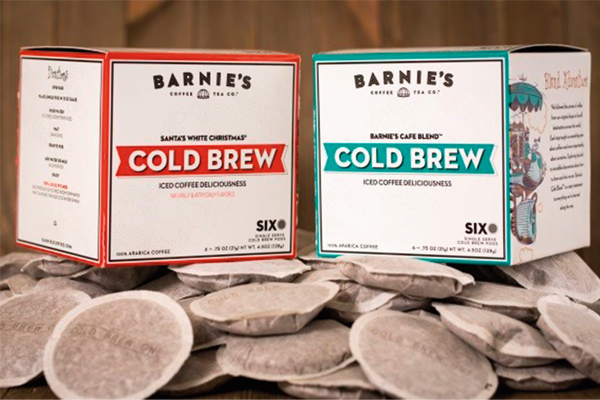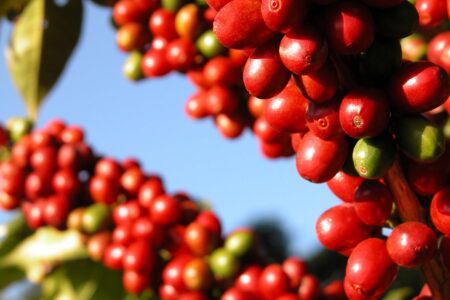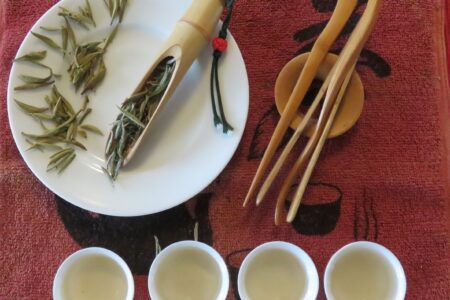Choosing the Right Co-Packer

Industry trends, seasonal peaks, ingredients and other considerations must be taken into account in looking for the right partner for your tea or coffee brand.
By Sean Riley
With health-conscious consumers representing a major segment of the beverage market, the industry continues to face a demand for additive-free, nutritious drinks. Specialty teas, coffees and other more natural drinks are growing exponentially in popularity as consumers gain awareness and take stake in the ingredients in their beverages. In this market climate, consumers are willing to pay a premium for beverages they feel will enhance or preserve their health.
This demand presents opportunities for smaller specialty beverage brands with foundations of natural ingredients and home-grown recipes to blossom. As smaller companies find their footing, co-packing can help take business from a local operation to a household name, but entering a co-packing partnership involves so much more than simply handing over the production reins. As tea and coffee manufacturers select a co-packer, it’s critical to consider all of the elements that may come into play, from capacity to reputation.
Benefits of Co-Packing
While it may be difficult for a beverage brand to relinquish part of the manufacturing process, forming a relationship with a co-packer can offer significant time-saving and cost-saving benefits, as well as greater flexibility. Signing on a co-packer means a brand can allocate more resources and funding to building brand presence and marketing initiatives. The decision to hand off production also eliminates the substantial financial burden required for purchasing equipment and the day-to-day risks associated with managing a facility, such as product quality, equipment maintenance and worker safety.
Co-packing also offers the perk of an easier transition if and when the decision is ever made to sell the brand to a large corporation. When selling the business is a brand’s ultimate goal, there is no need to take on in-house production. Larger corporations already have the resources and capabilities in place to handle the manufacturing of many products. Still, even if selling is not in a brand’s future, enlisting a co-packer can be an excellent way to gradually move from initial start-up growth toward in-house production. Co-packing can assist with expanding reach until a brand’s presence becomes more robust.
Market Shifts Impact Co-Packing
The rise of natural products in the beverage market is causing a shake-up in co-packing, according to PMMI’s 2018 Beverage Trends in Packaging and Processing Operations Report. Consumers demand tea made from actual tea leaves as opposed to concentrate, and these formulas require new equipment, different processes and more space that even the major co-packing players cannot always accommodate. As a result, co-packers receive a large portion of new beverage tea production, leading to not only new lines but entirely new facilities that operate around this growing need and can scale up as demand increases. Equipment for this type of tea, as well as for cold brew coffee and retort beverages, currently make up the largest demand for beverage production.
Selecting the Right Size
Once a brand decides to source a co-packer, there are multiple aspects to look out for before signing a contract. These companies should focus on selecting a co-packer that matches the size of the brand, ensuring the co-packer is attentive to its needs without being too costly. Hunting for the perfect-sized co-packer can be tricky. Burgeoning brands may want to avoid larger co-packers if those companies have a track record of cutting smaller customers out of production when juggling higher-volume orders. Larger co-packers can also come with minimum requirements for runs that are above what a small- to mid-sized tea or coffee brands require. Smaller beverage companies also have difficulties getting good pricing on raw materials and packaging materials, as well as placement in the production schedule, according to PMMI. Ideally, a brand will select a co-packer similar in size and the two entities can grow together.
It is also important for brands to consider the characteristics of their product and required manufacturing processes. Before beginning their search, brands must establish a list of demands, whether it be just manufacturing or also sourcing ingredients and handling other steps. It’s critical for brands to ensure a co-packer is properly equipped to handle their needs, so touring the facility and understanding a co-packer’s current client roster are beneficial steps. Additionally, it’s worth assessing whether a potential co-packing partner is ready to handle busy seasons.
Identifying Special Product Needs
Before entering a contract, it’s imperative to lay out any additional needs or specifications of the product that the co-packer will be manufacturing. It’s paramount that co-packers be open to adding new SKUs to production and that their lines can accommodate this changeover. Certain products also may require special certification or capabilities. Tea made from real tea leaves, for example, requires specific extraction, agitation and steeping techniques. As additive-free beverages continue to gain popularity, filling lines must be adapted to the unique behaviours of these formulas, and not all co-packers will be prepared to meet these requirements.
Co-packers may also lack the packaging format a brand desires. According to PMMI, some companies have had to source co-packers outside the United States to get the packaging required for their products. This is a current issue for retort packaging, which many coffee and tea brands are utilizing for their products.
Transparency and Compatibility
Ensuring a successful contract with a co-packer relies heavily on how compatible the co-packer is with the brand. Co-packers that make for easy partners are those that offer collaborative environments and are transparent with their brands about any issues or changes in production. Often, the best way to understand how a co-packer operates in a partnership is to examine its previous and existing clients and find out what their opinions are of the co-packer.
A co-packer’s quality is also evident in its response to a crisis. If a co-packer ever had a recall situation, the way it handled this issue can be revealing of its overall attitudes and commitment to product quality and consumer safety. It’s important to research these cases and to also check in on how a co-packer handles various procedures in general in order to understand its sanitary standards, quality testing methods and inspection schedules.
Pick a Co-Packer for the Future
Brands with successful co-packing partnerships have chosen companies that support their long-term growth and are able to adapt to new ideas and changing needs. Often co-packers will have research and development teams in house and can provide insight on packaging trends, graphics expertise and cost-saving methods that brands can utilize in production. Choosing a co-packer that holds these capabilities and is actively anticipating movement in the market can help a brand differentiate.
Ultimately, brands should go with their gut. If a co-packer checks all the boxes for capacity and capabilities and has a solid reputation, entering a partnership has the potential to grow a brand far beyond the collaborator’s imagination.
Sean Riley is senior director, media and industry communications, PMMI, The Association for Packaging and Processing Technologies. Tea and coffee companies seeking expert insight into co-packing and other manufacturing needs can find solutions at the second ProFood Tech, which will be held in Chicago, Illinois, 26-28 March 2019. The show will be organized by PMMI, which produces Pack Expo; Koelnmesse, which runs Anuga; and the International Dairy Foods Association (IDFA). For information on ProFood Tech, visit profoodtech.com.




Good day,
We are Johannesburg based company involve in food and beverage industry, we are trying to make milkshake(ice cream based) can be shelf stable at least 6 months, please tell us if you can help in formulation and packaging.
Thank you very much.